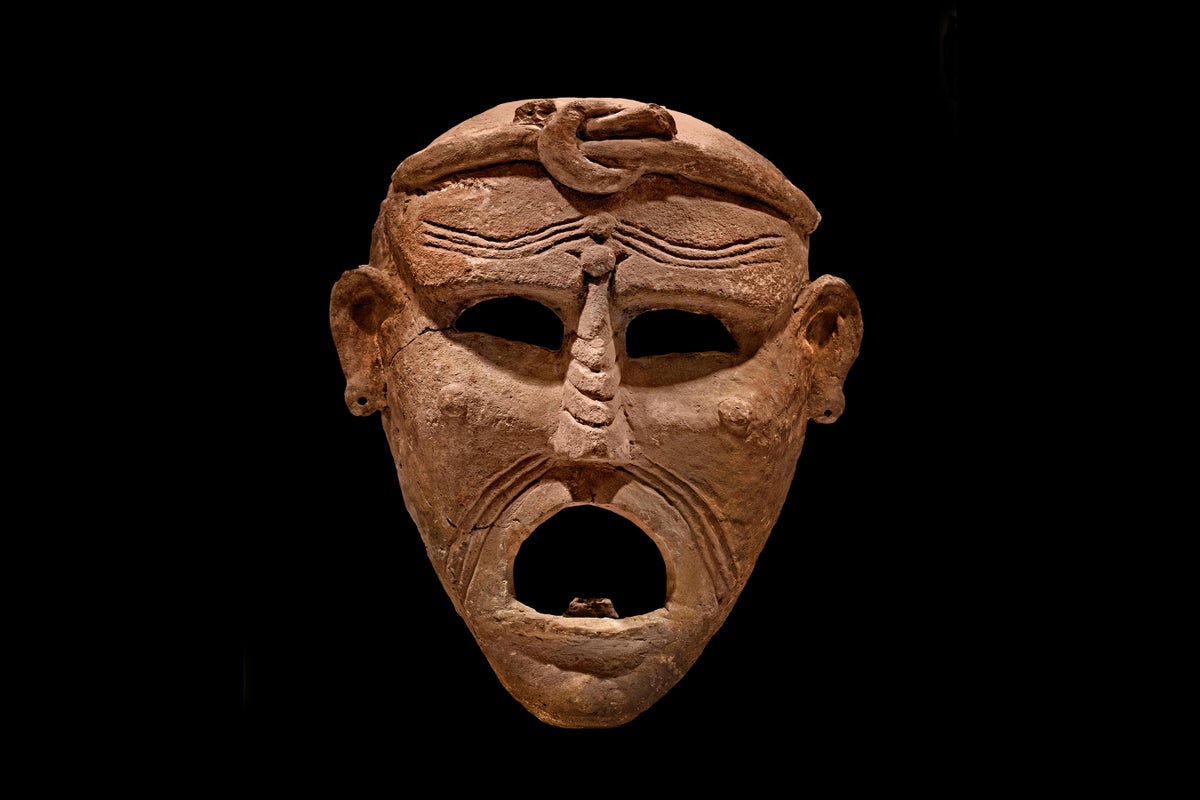Ancient DNA Reveals Phoenicians’ Surprising Ancestry
Phoenician civilization spread its culture and alphabet across the Mediterranean but not, evidently, its DNA
A death mask from the third or second century bc found in the Phoenician trading city of Carthage in what is now Tunisia.
Join Our Community of Science Lovers!
An ancient Middle Eastern civilization that developed an early alphabet spread its culture far and wide—but not its DNA, finds a 23 April Nature study of hundreds of ancient human genomes.
Phoenician civilization emerged more than 3,000 years ago, centred around what is now Lebanon, before expanding across the Mediterranean Sea. Middle Eastern Phoenician city-states eventually fell to other groups, but the culture thrived farther west—most notably in Carthage, in what is now Tunisia, until its destruction in 146 BC.
Phoenician city-states shared languages—recorded with an alphabet that was a precursor to Greek and Latin letters—religious practices and maritime trading economies. Many researchers have presumed that their inhabitants also shared ancestries connected to the culture’s Middle Eastern origins.
If you’re enjoying this article, consider supporting our award-winning journalism by subscribing. By purchasing a subscription you are helping to ensure the future of impactful stories about the discoveries and ideas shaping our world today.
To Ringbauer’s surprise, people from Mediterranean outposts of Phoenician culture—also known as Punic people—shared no ancestry with ancient Middle Easterners, even those from sites linked to Phoenicians and their forebears the Canaanites.
But neither did Punic people’s genomes always resemble those of people from other local populations, such as those in Sardinia and Ibiza. Instead, Punic people shared an ancestry profile resembling those of ancient inhabitants of Greece and Sicily. Over time, North African ancestry entered the mix—reflecting the rise of Carthage after 500 BC.
After the fall of Phoenician city-states in the Middle East, people with ancestry from this region might have been cut off from the Mediterranean highway, says Ringbauer.
The absence of Middle Eastern ancestry in Punic people doesn’t surprise Pierre Zalloua, a geneticist at Khalifa University in Abu Dhabi, United Arab Emirates. “The Phoenicians were a culture of integration and assimilation,” he says. “They settled where they sailed.”
This article is reproduced with permission and was first published on April 23, 2025.
Ewen Callaway is a senior reporter at Nature.
First published in 1869, Nature is the world’s leading multidisciplinary science journal. Nature publishes the finest peer-reviewed research that drives ground-breaking discovery, and is read by thought-leaders and decision-makers around the world.
Source: www.scientificamerican.com
